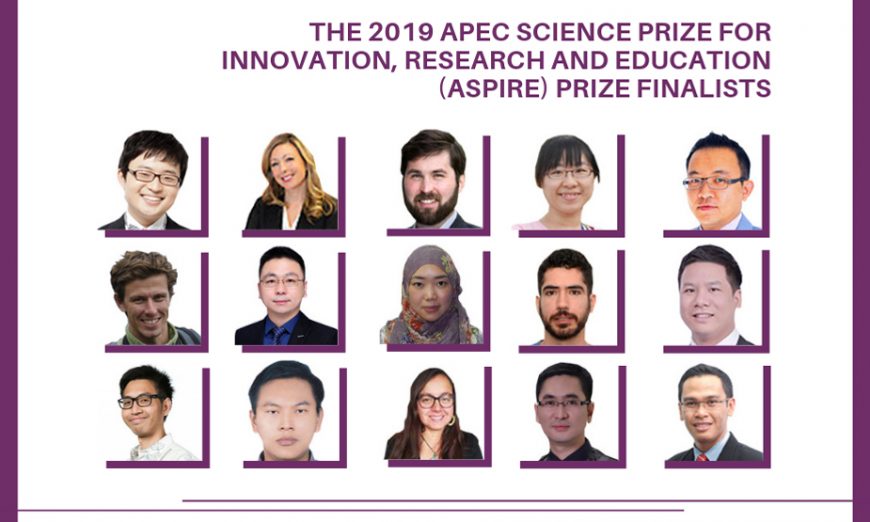Using crab shells to cleanse minerals from contaminated waters. Mimicking natural photosynthesis to generate renewable energy. Combining field experiments with computer simulation to see when and where fish species will cross boundaries due to climate change. These are some of the pioneering research that are being considered for the 2019 APEC Science Prize for Innovation, Research, and Education, popularly known as the ASPIRE Prize.
An annual award that recognizes young scientists across the Pacific Rim region who demonstrate excellence in scientific research, this year the ASPIRE Prize promotes innovative research that advances society through ‘natural laboratories’. The winning entry among the current crop of 15 finalists will receive a USD 25,000 prize from Wiley and Elsevier, publishers of scholarly scientific knowledge.
“The ‘laboratory’ of nature has inspired generations of scientists to tackle the world’s most pressing challenges. In turn, the scientists’ innovative approaches inspire us to pursue economic growth that is sustainable in the long-term,” said Dr. Fabiola Leon-Velarde Servetto, Chair of the APEC Policy Partnership for Science, Technology, and Innovation, which oversees the prize.
“From sustainable energy production to protection of the marine ecosystem, the issues raised by these exceptional scientists this year reflect APEC Chile’s focus on sustainable growth for 2019. The discoveries enabled by science, technology, and innovation can be crucial to economic development and help decision-makers make better policy decisions,” she continued.
Nominated for their scientific accomplishments and cross-border collaboration, this year’s ASPIRE Prize nominees represent APEC’s most inventive minds. Each economy may nominate one individual, who must be from the region and under 40 years of age.

